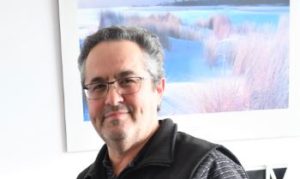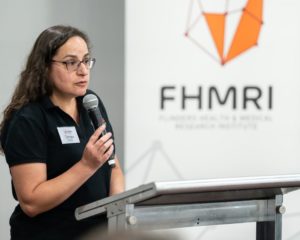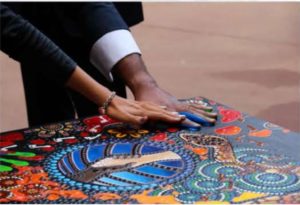
Gaping policy shortfalls in the Australian Government’s ‘Closing the Gap’ program have seen it fail to reduce disparities in Indigenous health, income, employment, child removal and incarceration, Flinders University researchers say.
In the lead-up to National Reconciliation Week , their five-year study just published in the Australian Journal of Public Administration examined why the targets of Australia’s national Closing the Gap strategy to reduce or eliminate inequalities in health, education and employment outcomes between Aboriginal and Torres Strait Islander people and other Australians have mostly not been met.

“Despite talk of governments ‘doing things with and not to’ Indigenous Australians, we found that most strategies implemented under Closing the Gap are controlled from the top by government agencies, leaving little room for Indigenous communities to have a say,” says lead author Dr Matthew Fisher, a senior researcher at the Southgate Institute for Health, Society and Equity at Flinders University.
“Indigenous leaders said consistently that Closing the Gap policy will be more successful when it supports greater community control at a local level and puts more focus on strategies to build community resources for health and wellbeing,” said Dr Fisher.
The study interviewed more than 40 key individuals involved in Closing the Gap policy between 2008 and 2018, from within and outside government. More than half of the interviewees identified as Aboriginal or Torres Strait Islander.
“The Indigenous health program within the national Department of Health provides a model of good practice,” said Dr Fisher. “It adopts a partnership approach to policy governance and supports a network of over 140 Aboriginal community-controlled health services.”
“However, ‘Closing the Gap’ strategies in education and employment could learn from this good practice,” he says, adding that Closing the Gap adopted a new partnership approach in 2019 aimed at improving outcomes.

‘Closing the Gap’ is a national strategy aiming to reduce or eliminate inequalities in health, education and employment outcomes between Aboriginal and Torres Strait Islander people and other Australians.
“Strong cultures are central to Aboriginal and Torres Strait Islander health and wellbeing, and this needs to be reflected in Closing the Gap strategies,” says co-author and Waljen woman, Associate Professor Tamara Mackean, from Flinders University George Institute for Global Health.
“In the 10 years studied, we identified policy incoherence between Closing the Gap policies, aiming to improve Indigenous health, and other policies in income management, child removal and incarceration, which are having the opposite effect,” she says.
“Our research sugbests that beliefs held by some political leaders about the superiority of ‘Western’ cultures over Indigenous cultures are a barrier to the policy changes needed to really close the gap in Australia,” the research concludes.

“The new policies adopted in 2019 are a very positive development, but in order to succeed the Closing the Gap program should address the issues identified in this research,” researchers say.
Read the article, Stakeholder perceptions of policy implementation for Indigenous health and cultural safety: A study of Australia’s ‘Closing the Gap’ policies (2021) by M Fisher, T Mackean, E George, S Friel and F Baum has been published in the Australian Journal of Public Administration (Wiley) DOI: 10.1111/1467-8500.12482.
Acknowledgements – The study received funding from the NHMRC Centre of Research Excellence on the Social Determinants of Health Equity, Grant/Award Number: GNT1078046
2021 marks twenty years of Reconciliation Australia and almost three decades of Australia’s formal reconciliation process.
Find out more about National Reconciliation Week #MoreThanAWord #NRW2021

